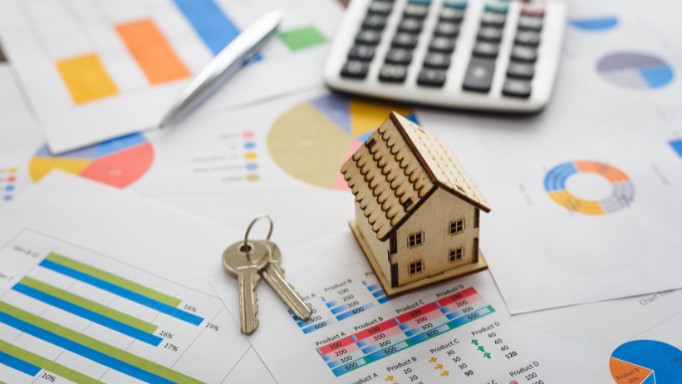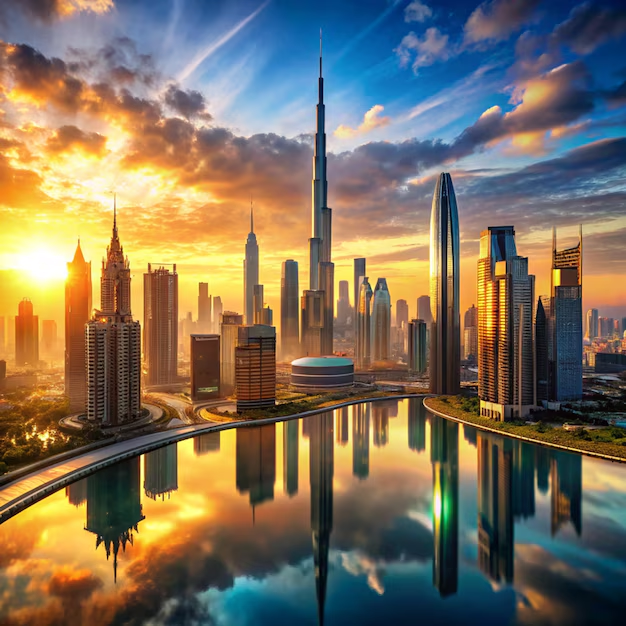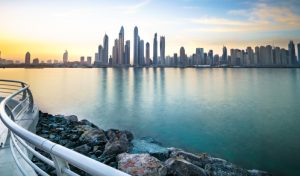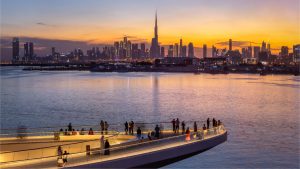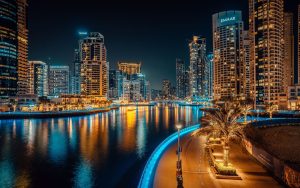The real estate market in Dubai has seen a steady increase in property demand, driven by the country’s strategic location and the government’s proactive efforts to attract foreign investors.
As a result, the market has become more competitive, with developers offering attractive payment plans and incentives to attract buyers.
The market shows no signs of slowing down, with an impressive 37,154 transactions in the first quarter alone, amounting to AED 109.85 billion.
In this article, we’ll look at the current state of the Dubai real estate market and discuss trends you should be aware of if you are planning to buy a property in Dubai.
Overview of the Dubai Real Estate Market
Dubai’s real estate market is on track for another strong year in 2024, with record sales volumes and values.
In Q3 2024, the market smashed all previous records with an astounding 50,425 transactions, marking a 38% year-over-year (YoY) increase.
The total sales value reached AED 141.95B, representing a 30% YoY growth. These figures show investors’ growing confidence in Dubai’s real estate market.
Moreover, during Q3 2024, 146 projects were registered, making it the most active quarter ever in the history of the Dubai real estate market.
Specifically, first-sale properties witnessed 34,289 transactions (53% YoY growth), reaching AED 89.93 billion in value (49.6% YoY increase).
Resale properties recorded 16,134 transactions (13.9% YoY growth), with a total sales value of AED 51.99 billion (6.2% YoY increase).
Historical Market Performance
Over the years, the Dubai real estate market has seen significant growth, with increased demand for residential and commercial properties.
The market witnessed a boom in the mid-2000s. However, the global financial crisis of 2008 led to a temporary decline in property prices.
Since then, the market has recovered strongly, showing steady price growth.
- 2021: 84,196 transactions worth AED 300 billion
- 2022: 97,255 transactions (59.5% increase from 2021)
- 2023: Residential transaction volumes up 29% (Deloitte)
Secondary market properties constituted 41% of total transactions in 2023, with Business Bay, Downtown, and JVC leading activity.
Current Market Overview
According to the Government of Dubai Media Office, Dubai’s GDP grew 3.3% year-over-year to reach AED 116 billion in Q2 2024.
The Q3 2024 Dubai real estate market recorded 50,423 sales totaling AED 141.9 billion.
During the quarter, 146 projects were registered and 21 completed, adding 5,183 units to the market.
Sectoral Analysis
Off-Plan Properties
Off-plan sales demonstrated strong demand, growing 58.7% year-over-year to 31,800 transactions.
Off-plan transactions comprised 63% of all deals in Q3 2024.
Top Off-Plan Investment Areas:
- Jumeirah Village Circle
- Al Furjan
- Arjan
- Damac Hills 2
- Dubai South
- Expo City Dubai
- Dubai Hills Estate
- Dubai Creek Harbour
- Tilal Al Ghaf
- Mohammed Bin Rashid City (MBR City)
Read more: How to buy an off-plan property in Dubai
Commercial Real Estate Trends
Dubai’s commercial sector continues steady growth, with prime areas such as DIFC, Downtown, and Business Bay reporting 95–97% occupancy rates.
24,000 new businesses were registered in H1 2024 (5% YoY growth).
Residential Real Estate Overview
Over 74,100 residential units were sold in H1 2024, marking a 29% increase year-over-year.
Luxury areas such as Dubai Marina and Palm Jumeirah continue to see strong demand.
Investment Outlook in the Dubai Real Estate Market
Investment Opportunities
- Residential: Jumeirah Village Circle remains a hotspot.
- Dubai Studio City: Growing commercial & residential hub.
- Office Spaces: Rising demand for flexible workspaces.
- Retail Spaces: Prime areas yield strong returns.
International buyers represent 42% of the market, highlighting Dubai’s global appeal.
Established Investment Zones
- Downtown Dubai: 1-bed apartments from AED 1.86M
- Dubai Marina: 1-bed apartments from AED 1.90M
- Palm Jumeirah: Premium waterfront investments
Rental Market
Average apartment rent reached AED 68,000 (19.3% increase YoY).
Average villa rent reached AED 180,000 (5.88% YoY increase).
Government Regulations and Impact
- Visa Regulations: Long-term visas for investors
- Ownership Laws: Freehold zones for foreign buyers
- Rent Caps: Protection for tenants
- Tax Benefits: No property or capital gains tax
Read more: Rental yields in Dubai real estate
Technological Advancements
Proptech Innovations
Online listings, VR tours, and AR property viewings have transformed buying experiences.
Smart Home Integration
Smart thermostats, lighting, and security systems are increasingly popular among buyers.
Sustainability and Green Building
Demand for eco-friendly home features has grown by 20% in the past year.
Popular eco-friendly developments include The Sustainable City and Al Barari.
Challenges
Affordability
High property prices in prime areas create affordability challenges.
Market Saturation
Developers are focusing on quality over quantity to prevent oversupply risks.
Conclusion
Dubai’s real estate market continues to show strong growth, supported by government initiatives, investor-friendly regulations, technological advancements, and increasing global demand.
With rising population growth and strong economic fundamentals, Dubai remains one of the most attractive real estate markets in the world.
